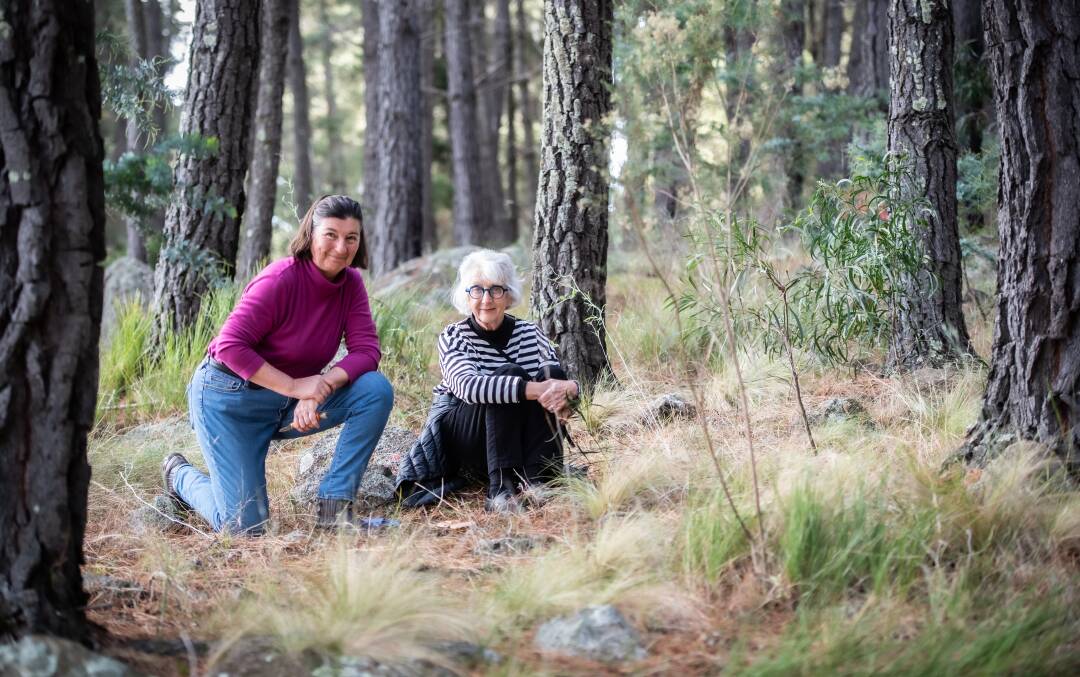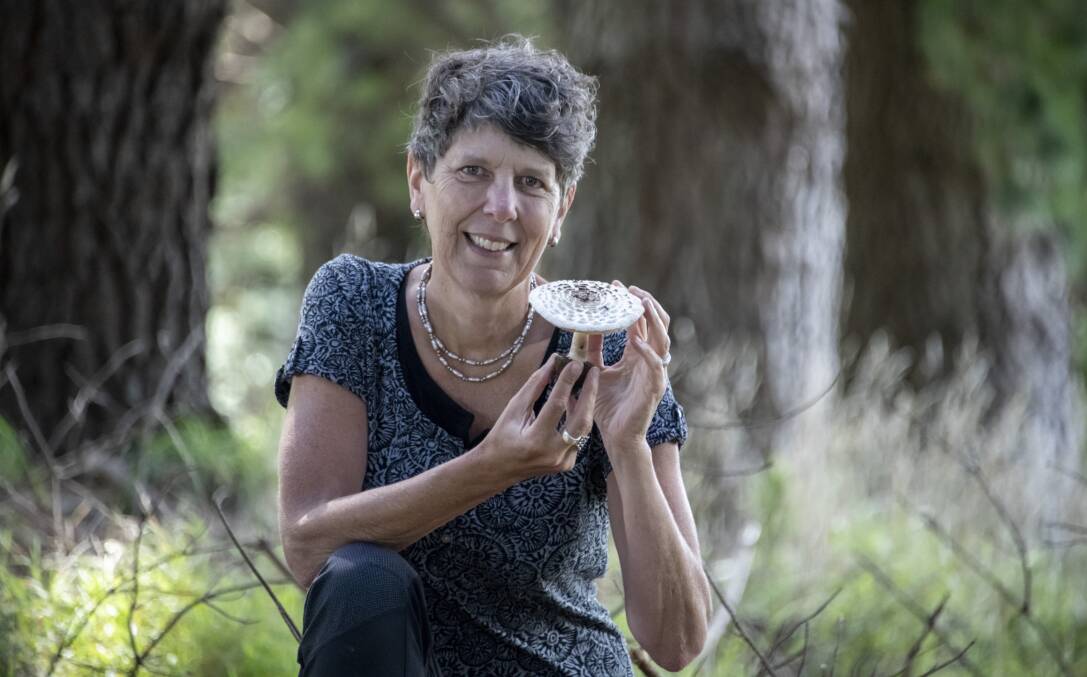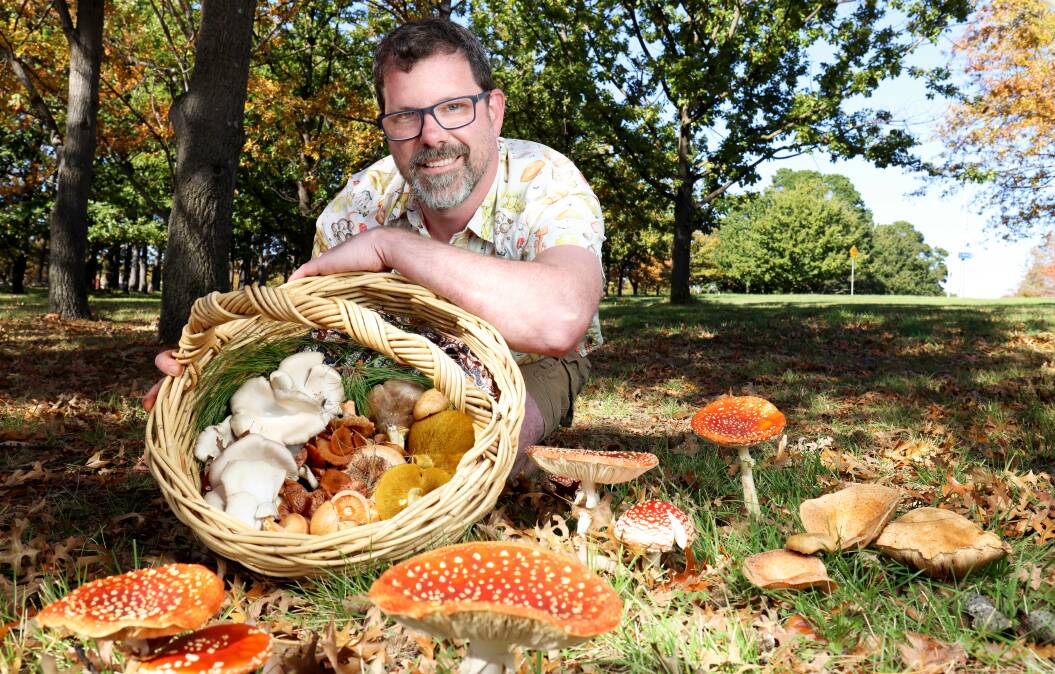
Twice a week throughout autumn up to 20 people meet at Yarralumla to scan the grounds around Weston Park for the many species of fungi sprouting up through the soil this time of year.
Wet weather has brought bumper crops to Canberra the past two seasons and 2023 is so far looking just as promising.
Barbara Reeve leads the group pointing out what's edible, what's definitely not and the symbiotic relationship between several species and the pines growing throughout the park.
Saffron milk caps grow in abundance in pine forests around Canberra including at Isaac's Ridge and off Sutton Road towards Queanbeyan.
Ms Reeve said the "beginner mushroom" is easily identifiable as it's bright orange on top and underneath with a hollow stem.
Foraging for fungi on public land is illegal in Australia as it's protected biodiversity. Foraging on private land in the ACT can be a gold mine for people who know what they're looking for.
"I tend to collect enough for a couple of days, I cook some with onions or leeks, maybe a bit of ham and then I'll freeze some to use later in the year when there are no mushrooms around," Ms Reeve said.
"If you want to jazz up some pasta - pull a packet of frozen mushrooms out and, boom, you've got a good dinner."

Alison Pouliot is an ecologist and fungi expert, whose searches for species have taken her all over the world.
Having completed her PhD at the Australian National University, Dr Pouliot will return to Canberra this month for a fungus workshop at Mulligans Flat.
"What's so fantastic about Canberra is there's so much bush so close by," she said.
Black Mountain and Mount Majura are among the locations rich with fungal diversity, she said, diversity in habitat typically meaning more varied species.
Death cap mushrooms grow around the Canberra region and the ACT government warns against touching, picking or eating wild mushrooms.
"Fungi pretty much underpin almost every terrestrial ecosystem on the planet," Dr Pouliot said.
She said fungi give structure and architecture to soils while holding soil particles apart to allow water to trickle through. Fungi also aerate soils which allows other organisms, such as invertebrates and plants, to inhabit it.
"They're also the great recyclers. Fungi secrete enzymes that break down organic matter, unlock those nutrients and make them available to plants," she said.
Dr Pouliot said fungi's use is only just being realised.
"We're in something of a fungal awakening," she said.
"[There are] many different new entry points to develop an interest in fungi."

Peter Wenzel has been operating Fungi Co out of Fyshwick for the past five years, providing science education to school students and using fungi to produce a range of materials.
Fungi Co sent fungi starter kits to schools around Australia allowing students to grow "living Lego boxes" they shipped back to Canberra to create a mushroom micro village.
"Kids tend to respond really well to fungi because they're weird and wacky and wonderful and colourful and they're also really fast growing," he said.
Scaling up from micro bricks, Fungi Co has begun making biomaterials, including leather, cardboard and polystyrene, using fungi.
Waste material, like paper, is diverted from landfill and then used as a food source for the fungi. The fungi fuse the material together and converts it into fungi. It can then be cured or dried and converted into things like balsa wood or leather, Mr Wenzel said.
"To replace something like polystyrene at this stage is hideously expensive comparatively, but in principle, it can be scaled up and that's the future," he said.
"We're only scraping the surface really.
"Some of the kids that we're opening their eyes up to fungi and how they work and how they behave as organisms in nature and in the classroom, those kids in 10 years time or 20 years time will be doing something that we can't even imagine."
We've made it a whole lot easier for you to have your say. Our new comment platform requires only one log-in to access articles and to join the discussion on The Canberra Times website. Find out how to register so you can enjoy civil, friendly and engaging discussions. See our moderation policy here.







